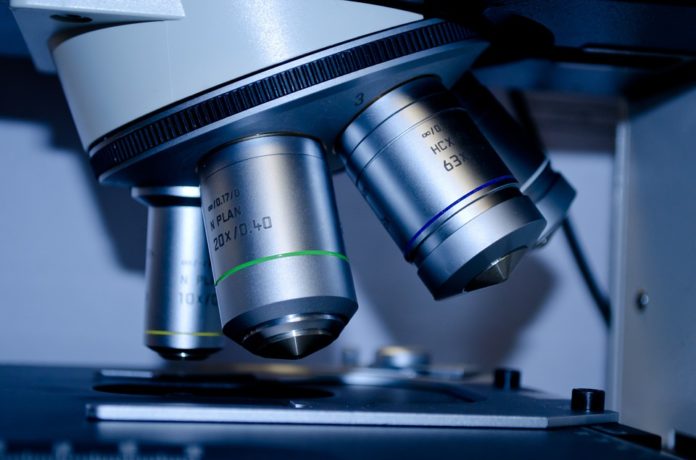If you have ever searched your medical symptoms online, you probably know that several medical conditions have similar indicators. To diagnose any disease, doctors recommend certain tests based on issues a person might be facing. Often, patients have to wait long for test results. Sometimes, slides and medical records get misplaced, too. Patients in remote areas have to travel huge distances, and proper treatment gets delayed even if they can bear the expenses.
One such situation was encountered by Lou Auguste when he worked to help people during the catastrophic earthquake in Haiti in 2010. With the mission to improve healthcare, he founded Alexapath LLC along with Dhaval Palsana and Shishir Malav in 2015. The company specialises in accessories to enhance functionality of microscopes, and is based out of Brooklyn, New York, USA.
The system uses telecommunications technology in pathology (telepathology) so that microscopes can act as the whole slide scanner. Malav says, “AiDA (artificial intelligence diagnosis and analysis) is an artificial intelligence (AI) powered mWSI (mobile whole slide imaging) system that automates routine lab tests.” Software mWSI then stitches several micro images with a small amount of overlap into a composite digital image of the whole slide for acquisition, transportation and storage purposes.
mWSI Live feature enables sharing of live video feed. It can even be run by semi-skilled medical workers after required specimen is obtained on a slide. Cloud-based electronic health records of the patient can thus be transmitted to a pathologist (or several, in complex cases) anywhere worldwide, who can then send results back to the clinic through the software. The database ensures user privacy as any video shared is never recorded or saved.
Discussing features and applications of AiDA, Malav elaborates, “Researchers can develop and deploy AI. Besides, users can consult with other experts online in real time. The system works with all types of slides—glass, rafters and microfluidics. Also, it is not limited to just one use-case. We are also developing AI bundles that target neglected tropical diseases (NTDs), women’s health and water analysis.”
The previously available sharing equipment is quite expensive as compared to Alexapath’s kit. This is especially useful in developing countries. Talking about cost of the products, Malav says, “For the Indian market, we offer a low-cost solution for ₹300,000 for the hardware, which includes an Olympus CH-20i microscope, three-axis robotic slide-holder and a camera-unit. Live sharing, acquisition and viewing software is available for a monthly subscription of ₹10,000.”
In the beginning, the team raised funds on crowdfunding platform Indiegogo under the name LiveLonger. After undergoing clinical trial and receiving support from USISTEF (United States-India Science & Technology Endowment Fund) and Qualcomm Design in India Challenge (QDIC), the startup worked on an AI diagnostics system called AutoPap for cervical cancer diagnoses in India. Among various others, it also worked with hospitals in Haiti for cancer screening.
Discussing the present scenario, Malav informs, “At the moment, we are building relationships with researchers around the world to create custom solutions across multiple fields (identifying parasites in water, childhood cancer, veterinary health, etc).” Under partnership with Bill and Melinda Gates Foundation, they are assisting National Autonomous University of Mexico (UNAM) for performing helminth egg analysis along with UNAM’s software HEAD (Helminth Egg Automatic Detector). Helminths occur in poor hygienic conditions and infect a range of hosts including humans, causing NTDs.
The company is building a telepathology network for diagnosis of blood cancers in Tanzania. Regarding further expansion of telemedicine services, Malav says, “We plan on creating a battery-powered version soon to make AiDA even more portable.”










